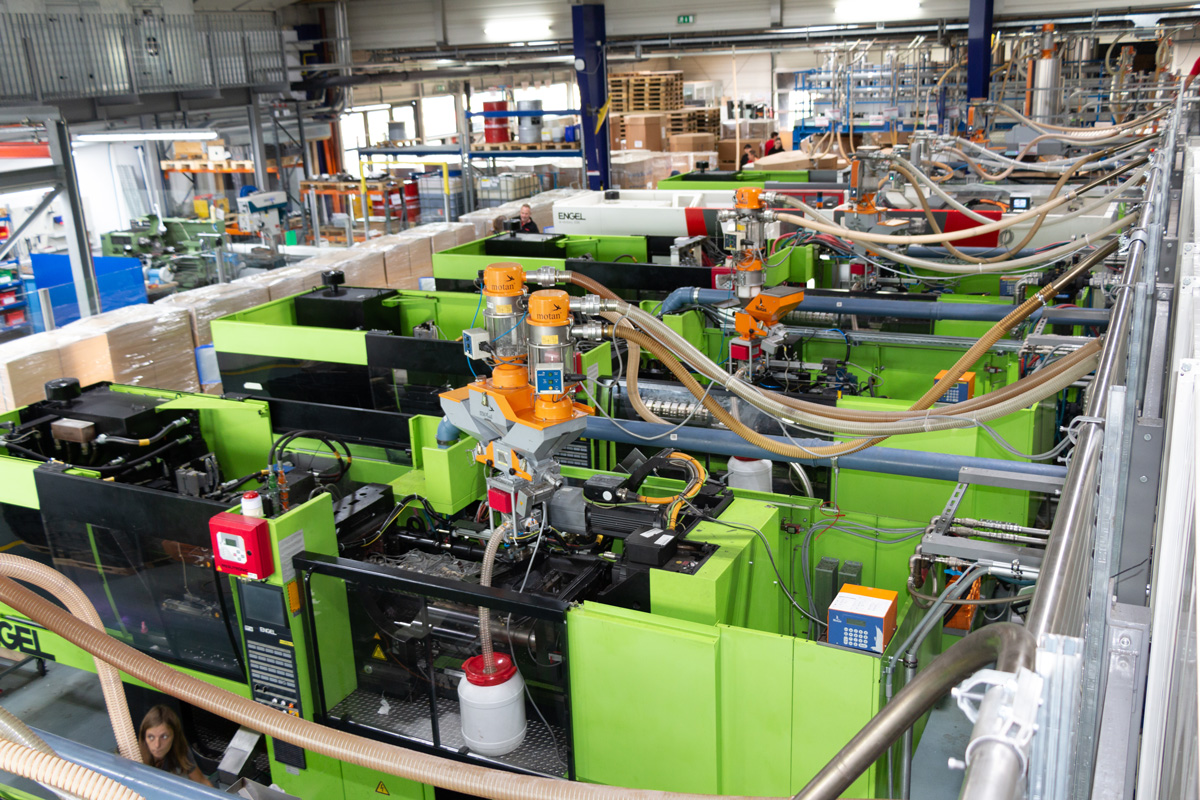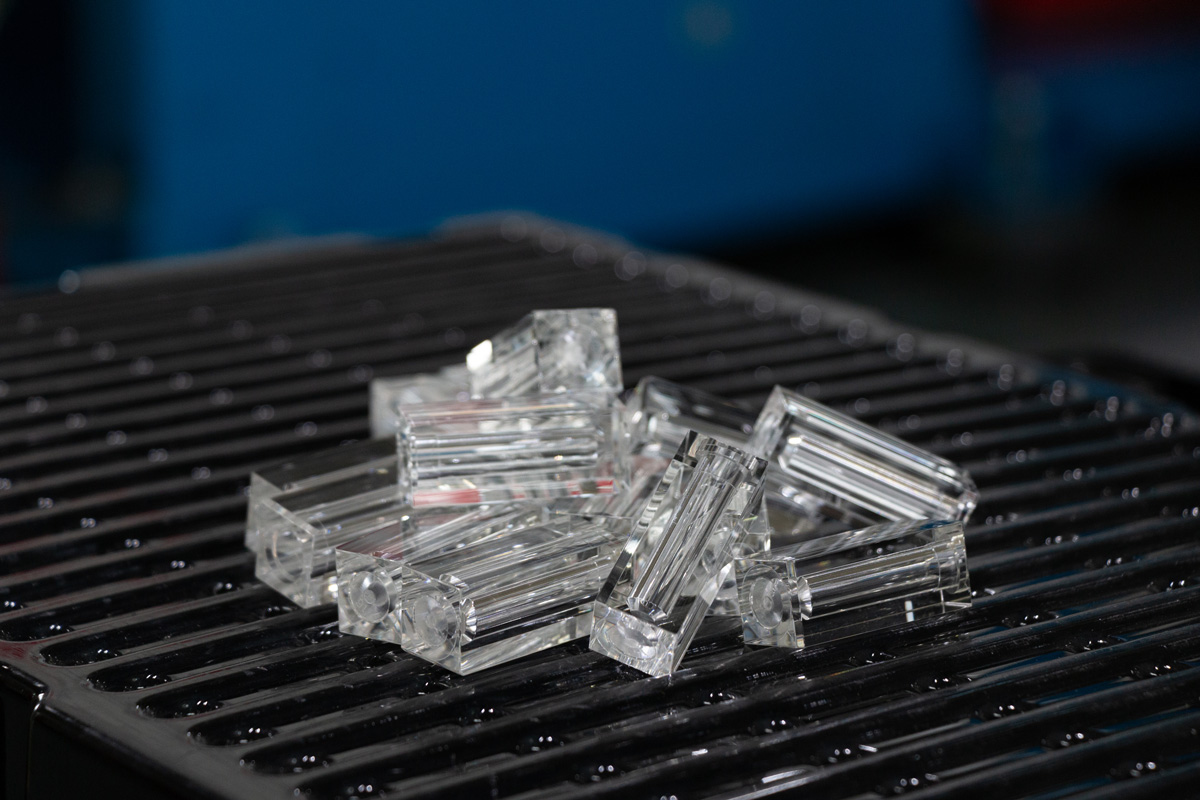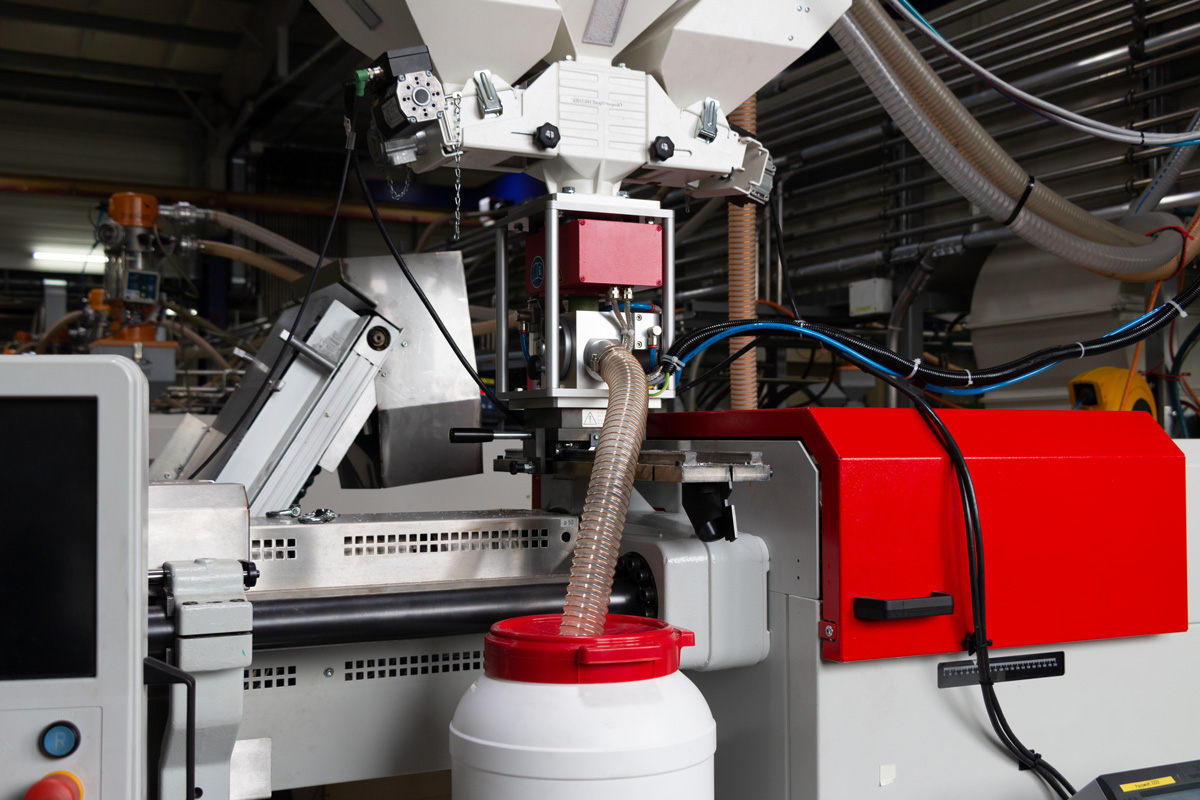News
Precision as a vocation – Increasing process reliability in the injection moulding industry by means of metal separators
Precision as a vocation – Increasing process reliability in the injection moulding industry by means of metal separators
Precision is a key criterion for the profitable manufacture of high-performance plastic parts. At Sola Messwerkzeuge AG, high-performance metal separators reliably help to avoid influences on product and process quality.
From attic to industrial plant
The history of Sola begins with Ing. Guido Scheyer and his colleagues Sottopietra and Latzel, from whose surnames the company’s name is composed. The first spirit levels were manufactured in the attic of a house. In the founding period wood was still the material of choice, as in many other areas. As early as 1957, however, aluminium was used as a starting product in order to improve measurement accuracy. From 1958 onwards, the company also entered into the production of plastics, initially with a mechanical injection moulding machine, which can still be seen today in the entrance area of the production hall of the Sola plastics plant. In 1969, production began in the new plant at the present-day headquarters in Götzis, Austria, where the era of the acrylic glass spirit level, whose closure by means of ultrasound was patented, also began for Sola.
In the following years, the product range was expanded to include many precision tools such as tape measures, folding rules or laser measuring instruments. Accordingly, the volume of plastic production also increased. This increasing in-house demand was supplemented by a high portion of third-party products, such as high-quality fittings for garden furniture. For this purpose, production was relocated to its own building in 2003, today’s Works 3. A total of 45 injection moulding machines with a closing force of 50 to 300 metric tons process more than 2,500 metric tons of plastics here every year. “Increasing production figures and the will to optimise have kept us constantly on our toes in recent years. The reduction of scrap and long service lives improve both the cost-effectiveness and the sustainability of our products”, says Guido Timmermans, Head of Plastics Production. Thus, Sola continues along the path taken many years ago with the first wooden spirit level to create long-term success with uncompromising precision and reliability.
Internal and external influences
The production of plastic parts by injection moulding is subject to various influences. Depending on the type of part to be manufactured, these have a greater or lesser impact on quality and cost-effectiveness. The ingress of foreign bodies is a major problem here, under certain circumstances both for the injection moulding process and for the finished part. Metallic foreign bodies in particular represent a relevant portion of possible impurities.
From the outside, metal impurities are introduced via the raw materials. This can take place via recyclates as well as via new material or masterbatches. Metals occur here as inclusions, or as loose parts in packaging units or tank trucks. A company’s own production environment can also be the cause of the ingress of metal parts through assembly and maintenance work, in-house comminution systems or simple inattentiveness. Metal chips, cable cores or washers are typical examples of such foreign bodies. If these parts get into the plastication unit, they can cause various problems. The most obvious is a blockage of the nozzle valve or, in the case of larger parts, even damage to the screw. As a result, this usually causes longer maintenance work and machine stops – several times per week and plant at Sola depending on the material processed.
Considered less, but still problematic, is the influence of metals in the melting process. Foreign substances influence the plastication process and can thus trigger quality problems, especially in the case of sensitive moulded parts. Finally, of course, invisibly enclosed metal particles are a threat to the structural integrity of the finished parts.
Reducing risks
In developing their risk minimisation strategy, ingress from the outside had to be kept to a minimum for Sola. This was accomplished by selecting high-quality suppliers with corresponding capacities in metal detection. Regular training for the personnel on the injection moulding machines, for the works engineering department and for external companies are further components for the reduction of the occurrence of foreign bodies. Despite these measures, however, the process quality that a manufacturer of high-precision measurement technology strives for had still not been achieved. A final safety measure at the machine inlet had to be found. At this installation position there are two widely used options for material inspection. One of them is magnets in different designs. However, these have the disadvantage of keeping only magnetic metals out of the system. This mainly means iron, as well as some types of formed stainless steels. However, the electronic metal separator lends itself as a solution for the reliable and automatic removal of all types of metal from the material flow.
Only one option for freedom from metals
All-metal separators for the machine intake are available from various manufacturers. They work according to the so-called “balanced-coil” principle. Following test installations, the Plastron 05 K was chosen. The appliance was produced by Mesutronic GmbH from Kirchberg im Wald. The compact metal separator was particularly convincing in the areas of detection accuracy and reliability. In addition, the Mesutronic employees delivered the best quality of service in the project planning, installation and commissioning phases.
“After installing the test unit from Mesutronic, we were able to significantly reduce our machine downtimes once again. The final decision was thus taken to equip the most relevant systems with metal separators”, says Michel Gorga from the Works Engineering department at Sola.
Thirteen metal separators currently protect the most vulnerable injection moulding machines. In addition to the tool-free disassembly of the ejection unit when changing materials or colours, the appliances offer a very high detection accuracy. Even fine chips or wire pieces made of stainless steel, copper or aluminium are reliably detected and discharged with minimal material loss. Thus, the two specialists for measurement technology have come together not only through the almost identical corporate colour, but also through their common claim to precision and reliability without compromise.


